Saudi-led coalition plundering Yemeni crude oil, depositing revenues in Saudi National Bank: YPC spokesman
A senior Yemeni energy official says Saudi Arabia and its allies continue to smuggle hauls of contraband crude oil out of the conflict-stricken country, and deposit the revenues in a Saudi National Bank (SNB) account.
Essam al-Mutawakel, a spokesman for the Yemen Petroleum Company (YPC), told Lebanon’s Arabic-language al-Mayadeen television news network that despite the fact that Yemen has sufficient oil and natural gas resources for both domestic demand and exports, its nation is deprived of such national wealth and people live under the conditions as if these reserves do not exist in the country at all.
“Yemen does not benefit from revenues derived from its crude oil sales, as the petrodollars are deposited in a Saudi National Bank account in Riyadh,” Mutawakel noted.
He stressed that “the coalition of aggression, spearhead by the United States, bears full responsibility for the fuel crisis in Yemen.”
الناطق باسم شركة النفط في حكومة #صنعاء عصام المتوكل لـ #الميادين: #اليمن دولة منتجة للنفط ونعاني مثل باقي الدول التي لا تملك ثروات نفطية، والتحالف على رأسه #أميركا يتحمل مسؤولية أزمة النفط في اليمن.#المشهدية pic.twitter.com/zfjPxcOuJs
— قناة الميادين (@AlMayadeenNews) July 6, 2022
Mutawakel continued that the Saudi-led coalition has banned several Yemen-bound ships carrying tons of fuel from docking at Hudaydah port in violation of a UN-brokered ceasefire agreement to end the siege and war on the impoverished country.
He noted that the Riyadh-led alliance seized more than 15,000 Yemeni ships during the COVID-19 pandemic.
The spokesman for the YPC highlighted that the coalition does not want FSO Safer floating oil storage and offloading vessel, which is moored in the Red Sea north of Hudaydah port, to come into service as its operation would alleviate fuel shortages that have hit Yemen so hard.
Last month, Mohammad Tahir Anam, an adviser to the Yemeni Supreme Political Council, said the country’s armed forces will launch retaliatory strikes against oil installations deep inside Saudi Arabia in case the Riyadh-led coalition keeps on smuggling the country’s crude oil and natural gas out of the country.
He warned the alliance that Yemeni authorities would not allow Saudi Arabia and the United Arab Emirates (UAE) to further violate the extended United Nations-brokered ceasefire and plunder Yemeni oil and gas.
The Yemeni official reported a sharp increase in the theft of Yemeni oil and gas in addition to the seizure of Yemeni vessels off the coast of the country’s southern province of Shabwah.
Saudi-led coalition presses on with truce violations
Furthermore, a Yemeni military official said the Saudi-led coalition forces and their allied militants have violated the UN-brokered ceasefire at least 175 times during the past 24 hours.
The official, who asked not to be named, told Yemen’s official Saba news agency that the violations included 32 flights of armed Saudi-led reconnaissance aircraft in the skies of the provinces of Ma’rib, Ta’izz, Hajjah, Sa’ada, Dhale, Hudaydah, Bayda as well as border areas.
He added that Saudi-led troops and their mercenaries also fired shots at residential buildings as well as positions of Yemeni army forces and fighters from the Popular Committees in the provinces of Ma’rib, Ta’izz, Hajjah, Sa’ada, Dhale, Hudaydah, Bayda and border region on at least 117 occasions.
The Yemeni military official further noted that the positions of Yemeni army soldiers and popular forced also came under artillery shelling in al-Rawdha area of Ma’rib province, Harad and al-Hamdani districts in Hajjah province, in addition to Monabbih, Madafen and Razih areas in Sa'ada province 26 times.
Saudi Arabia launched the devastating war on Yemen in March 2015 in collaboration with its Arab allies and with arms and logistics support from the US and other Western states.
The objective was to reinstall the Riyadh-friendly regime of Abd Rabbuh Mansur Hadi and crush the Ansarullah resistance movement, which has been running state affairs in the absence of a functional government in Yemen.
While the Saudi-led coalition has failed to meet any of its objectives, the war has killed hundreds of thousands of Yemenis and spawned the world’s worst humanitarian crisis.
VIDEO | Press TV's news headlines
July 26: ‘Axis of Resistance’ operations against Israeli occupation
Palestinian resistance fighters hit Israeli Merkava 4 tanks
VIDEO | UK police brutal assault on Muslim family sparks outrage, protests
Hamas: Death of leader in Israeli jail amounts to murder
EU sends €1.5 billion to Ukraine from frozen Russian assets
VIDEO | Millions of Yemenis rally for Gaza, call for more anti-Israel operations
UN chief calls for Olympic truce as games begin in Paris


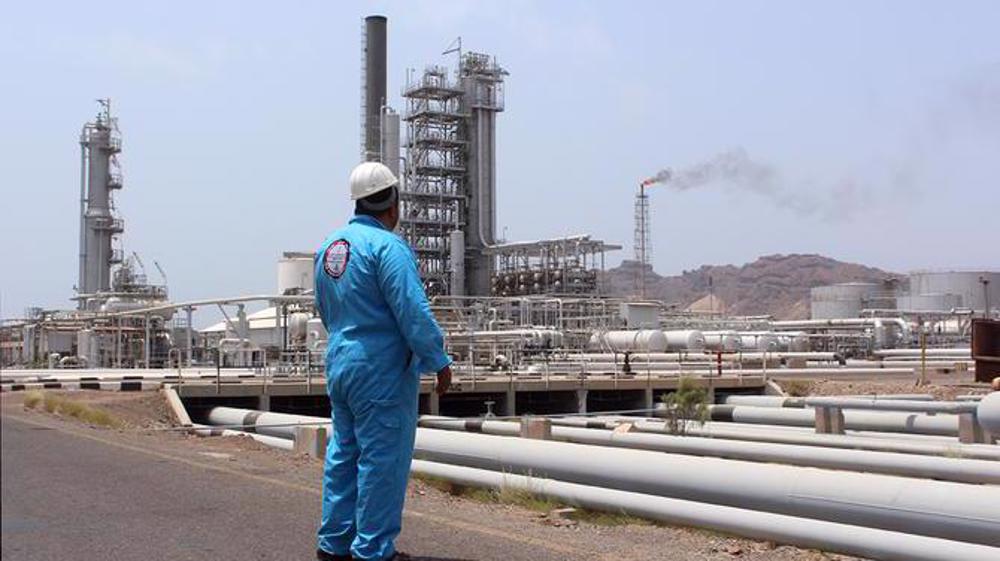

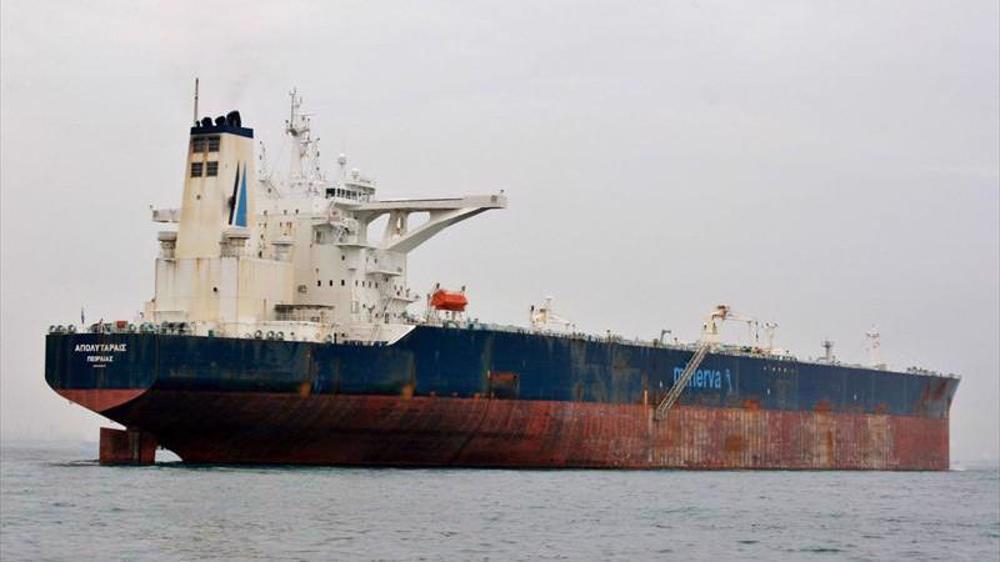
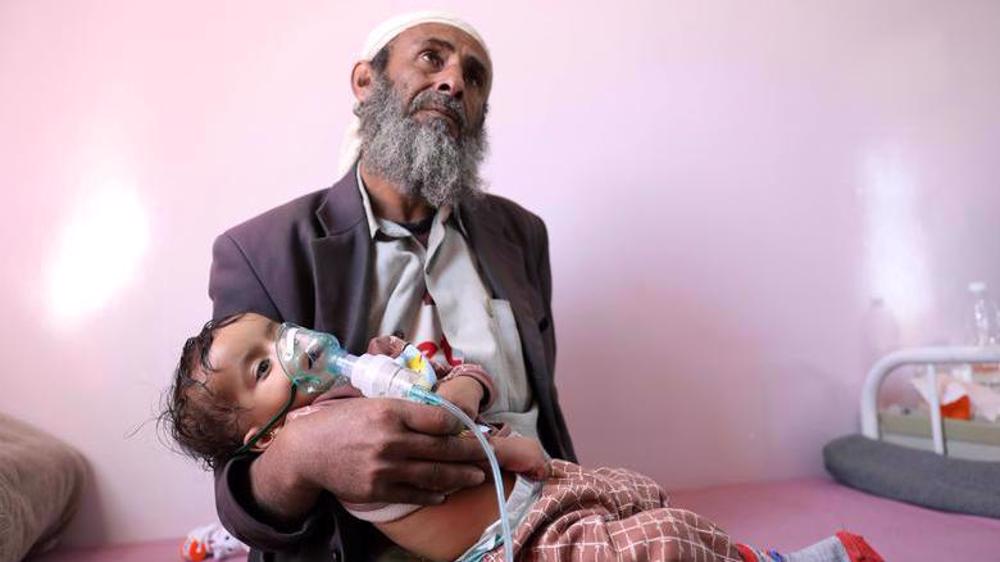
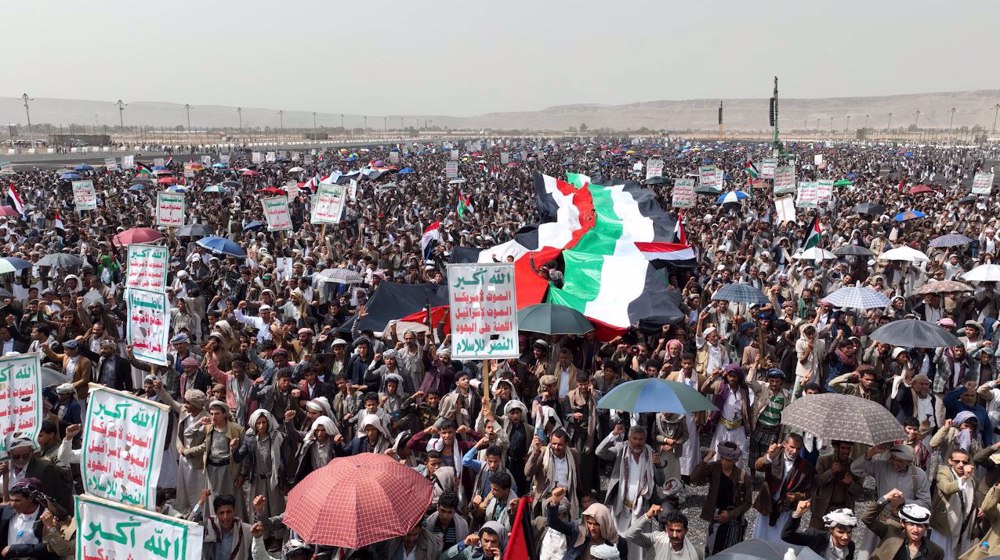

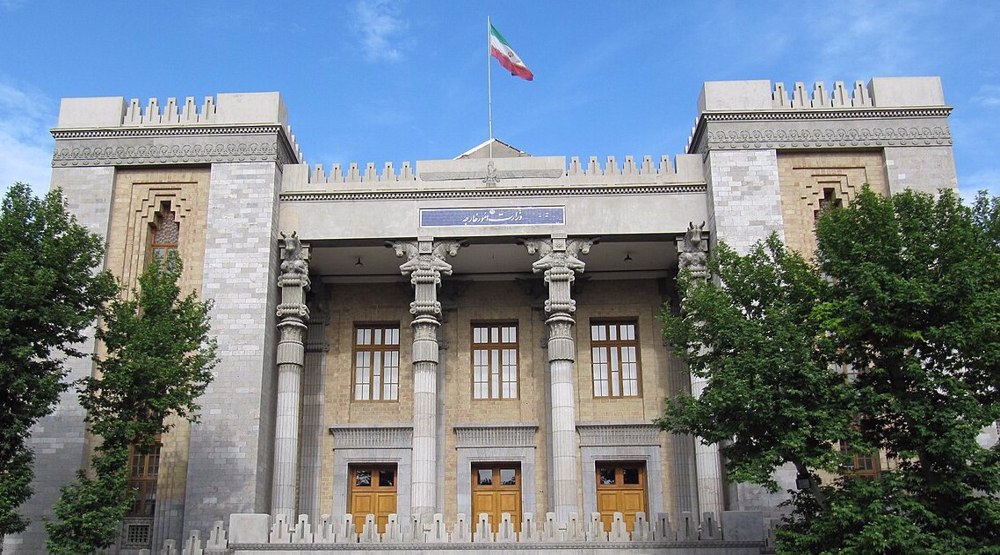





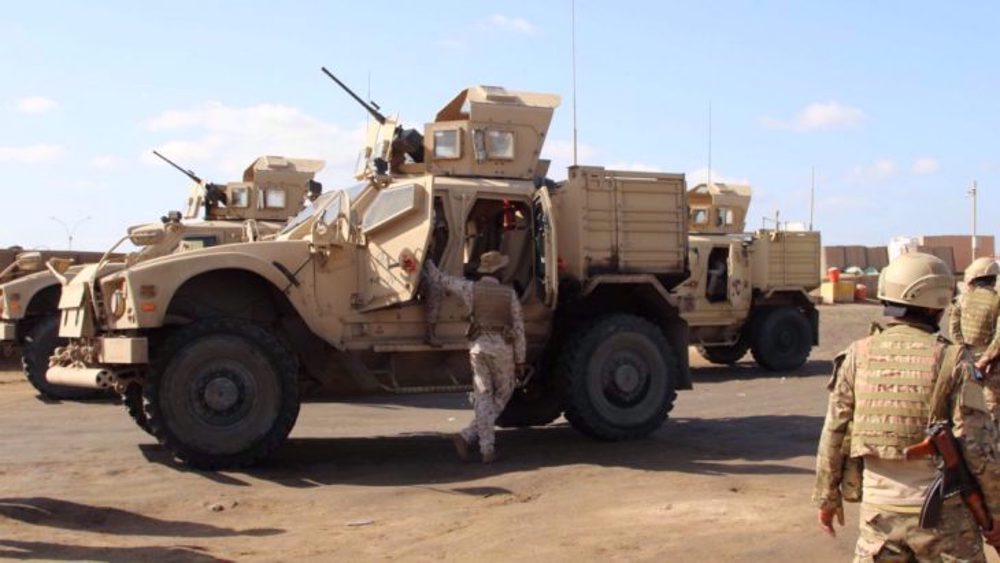

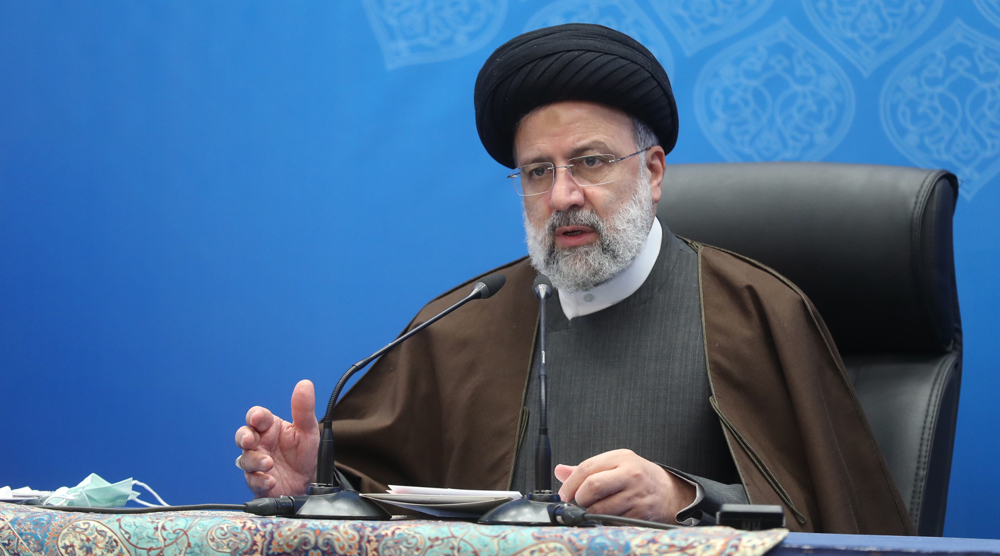

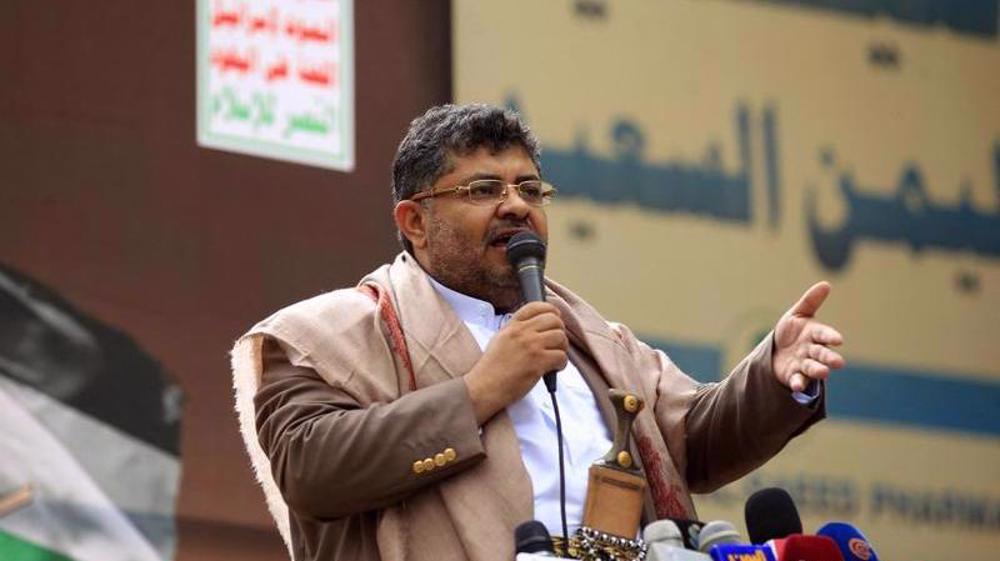
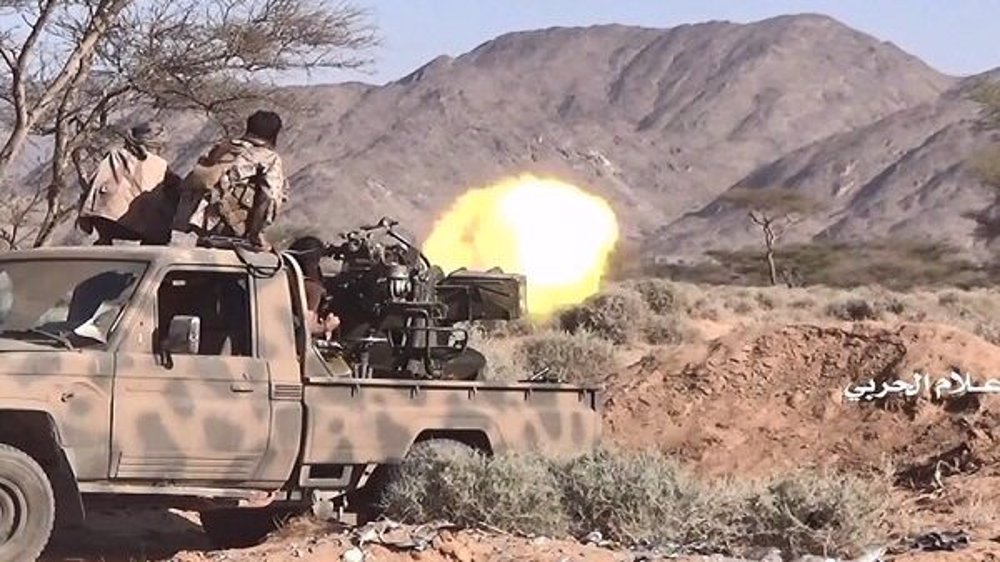

 This makes it easy to access the Press TV website
This makes it easy to access the Press TV website